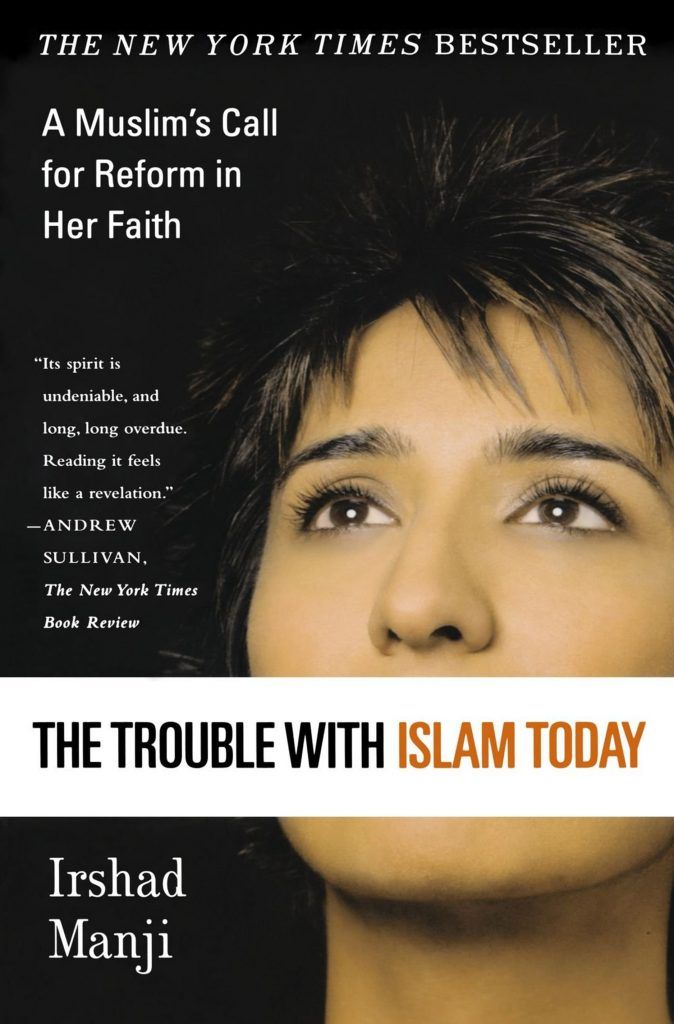
Irshad Manji is a Canadian Muslim lesbian whose book, The Trouble with Islam: A Muslim’s Call for Reform in Her Faith was published in 2003 and re-published with the title The Trouble with Islam Today in 2005. She was in Chicago on Feb. 13 for two events: a meet-and-greet and interview at Roosevelt University, and an evening lecture at the University of Illinois at Chicago (UIC).
What follows is the interview conducted at Roosevelt.
Windy City Times: Let’s talk about Project Ijtihad, and its progress so far. You write about social entrepreneurship and projects for women. Can you name some specific projects and things that have happened?
Irshad Manji: Project Ijtihad is only a year old. We’re in the process of designing an interactive Web site that will, unlike any other out there, actually host taboo-busting debates about Islam. … There are plenty of sites that offer alternate views of Islam … but there’s none we’ve come across that actually hosts debates with scholars, with journalists in which people are challenging one another in real time. There are chapters of Project Ijtihad cropping up—there’s one in Amman, another in Dubai [and] one that is in the works in London. And each of these, while very much under the rubric of the project, will obviously respond to local needs as well…
One very concrete success—and this will actually be covered by 60 Minutes in a story that’s going to be aired in April or May— [is that] the work that Project Ijtihad is doing has managed to turn a seasoned young jihadi in the UK away from the terror network. One of the things that I can tell you … is that he has already left the network and his former brothers in the network now know that he’s a defector. One could argue that he’s a dead man walking. He can’t afford, and Project Ijtihad can’t afford, to provide professional security services. So what has he done? He’s actually managed to convince three other former members of the jihadi network to come to his side. And now they are serving as his bodyguards.
It’s a little bit surreal, and it certainly is embryonic. But how does anything start without those initial steps?
WCT: I’d like to talk about queer organizing and your work, which isn’t the focus of The Trouble with Islam. What do you see as issues in terms of LGBTQ youth and Islam?
IM: It’s actually going to become more of a focus of my Web site. I am increasingly faced by a deluge from queer-identified Muslims who don’t know where else to turn. My first instinct, always, is to tell them there are groups like Al-Fatiha (Al-fatiha.org) , Salaam (Salaamcanada.org) and so forth. But often, what they’re looking for is not support but rather the philosophical argument from within the faith about why they are not complete apostates for being this way. And I’m actually in the process, so if you come back to my site next month, you’ll see that there’s going to be a section for all kinds of people where you can just click and get copies of speeches that I’ve given about this [and] some of the interviews I’ve done about this.
I am allergic to the notion of reducing any of us to one identity. I think, honestly, that’s what so many young Muslims are struggling with, particularly in Europe but also in North America. The other thing is that it is so easy for this to become … a weapon of mass distraction. The fact of the matter is, it’s an emotional distraction from the points I make about the need to think for yourself.
But here’s the great frustration of it all. … To this day, I’m told I shove it in people’s faces. You’re either too gay or you’re not gay enough. And, at a certain point, I have to just remember what the goal of this mission is—and it has to do with the mind, not with sexual orientation or gender or skin color.
WCT: Let’s talk about the connections made between you and [Dutch politician] Ayaan Hirsi Ali. As you know, she’s been criticized for right-wing views on Islam. There’s also the continuing issue of how U.S. and European gays might respond to reports of violence against gays in say, Iran. [This] leads to a debate about how progressives might take on such issues without, for instance, siding with the administration’s actions against Iran. How do you reconcile those things?
IM: There’s no easy answer to that. I’ve been routinely accused of being right-wing, of being a neoconservative. [ That ] hurts me and appalls me, considering I come from a perspective of universal human rights. This used to be the terrain of the classical left—of classical liberals—who believe that every individual is entitled to a certain set of basic dignities. There’s an us-vs.-them mentality going on and the really sad part about that is … I identify as a liberal through and through. But I’m not a conventional liberal anymore. It floors me that we will sully George W. Bush for using “You’re with us or without us” language…We’re exactly the same.
I’m arguing that there are two occupations, not just one. One occupation is of the military occupation now of the West Bank, but formerly of the West Bank and Gaza. That has to end.
The other occupation, no less significant, is of the Palestinian mind-set by their own corrupt leaders. But do you ever hear staunch liberals acknowledge that Palestinians are facing two forms of oppression, not one? It is always an us-vs.-them mentality—and how does that lend credence to the notion that we’re any different than George W. Bush? We’re not. And if we had the kind of power that he does, I dare say we would be as malignant in our use of that power as long as we tout the same lies that we do now.